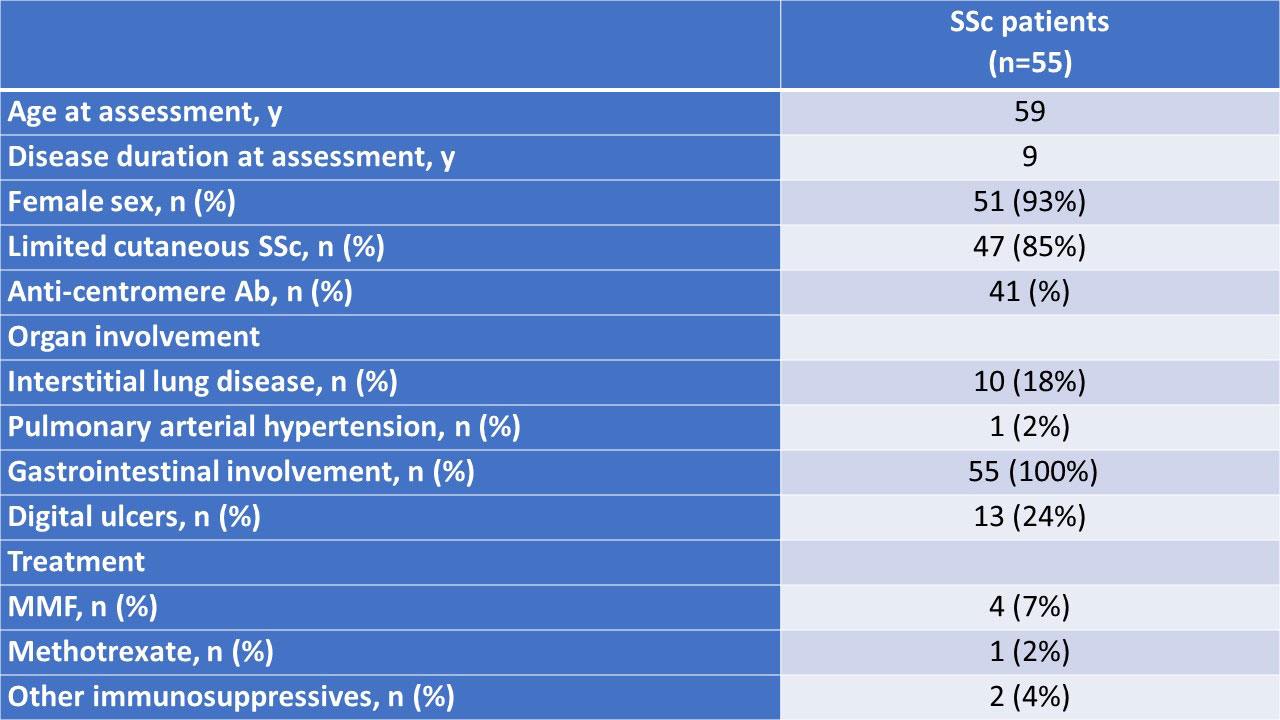Session Information
Session Type: Poster Session B
Session Time: 9:00AM-10:30AM
Background/Purpose: Assessment of disease burden is crucial in the management of systemic sclerosis (SSc). The patient global assessment (PatGA) is a patient self-reported measure widely used in SSc. It should reflect the patient’s own assessment of the impact of their condition. The Physician’s Global Assessment (PhyGA) is a measure used by physicians to determine the patient’s overall disease burden. Nurses are distinct from other healthcare providers as they have a wide scope of practice and approach to medical care. They play an integral role in promoting health, preventing illness, and caring for all individuals, including those who are disabled or are physically or mentally ill. However, to date the nurse global assessment (NurGA) has not been assessed. The objective of our study was to assess patient, physician and nurse assessments of disease burden of SSc patients and their agreement.
Methods: We included SSc patients from the Oslo University Hospital (OUH). The PatGA, PhyGa and NurGA were assessed on 100-mm Visual Analogue Scales (VAS) on the same day at an outpatient visit between January 2021 and February 2022. In total, two physicians and one nurse assessed all SSc patients. We evaluated agreement between Pat, Phy and NurGA using descriptive statistics and correlation analyses.
Results: We evaluated 55 SSc patients, including 6 (11%) diffuse, 47 (85%) limited cutaneous SSc patients and 2 (4%) patients with SSc overlap syndrome; 51 (93%) were females with mean age of 59 years (Table). Organ manifestations are shown in the table. The overall disease burden assessed by patients, physicians and the nurse is shown in Figure 1. Both physicians and the nurse assessed the disease burden significantly worse compared to the patients, with less differences between the patients and the nurse (Figure 1). The correlation between the disease burden assessed by physicians and patients was only weak, while moderate between patients and the nurse and the nurse and physicians (Figure 2).
Conclusion: The discordance and low correlations between Pat, Nur and PhyGA suggest that global assessments of disease burden in patients with multiorgan diseases should include more comprehensive assessments. It also highlights the distinct role of the nurse from other healthcare providers supporting their central role in the management of patients with SSc.
To cite this abstract in AMA style:
Nordgård Carstens M, Fretheim H, Barua I, Didriksen H, Garen T, Midtvedt Ø, Molberg Ø, Hoffmann-Vold A. Discordance of Patient, Physician and Nurse Practitioner Assessment of Disease Burden in Systemic Sclerosis [abstract]. Arthritis Rheumatol. 2022; 74 (suppl 9). https://acrabstracts.org/abstract/discordance-of-patient-physician-and-nurse-practitioner-assessment-of-disease-burden-in-systemic-sclerosis/. Accessed .« Back to ACR Convergence 2022
ACR Meeting Abstracts - https://acrabstracts.org/abstract/discordance-of-patient-physician-and-nurse-practitioner-assessment-of-disease-burden-in-systemic-sclerosis/



